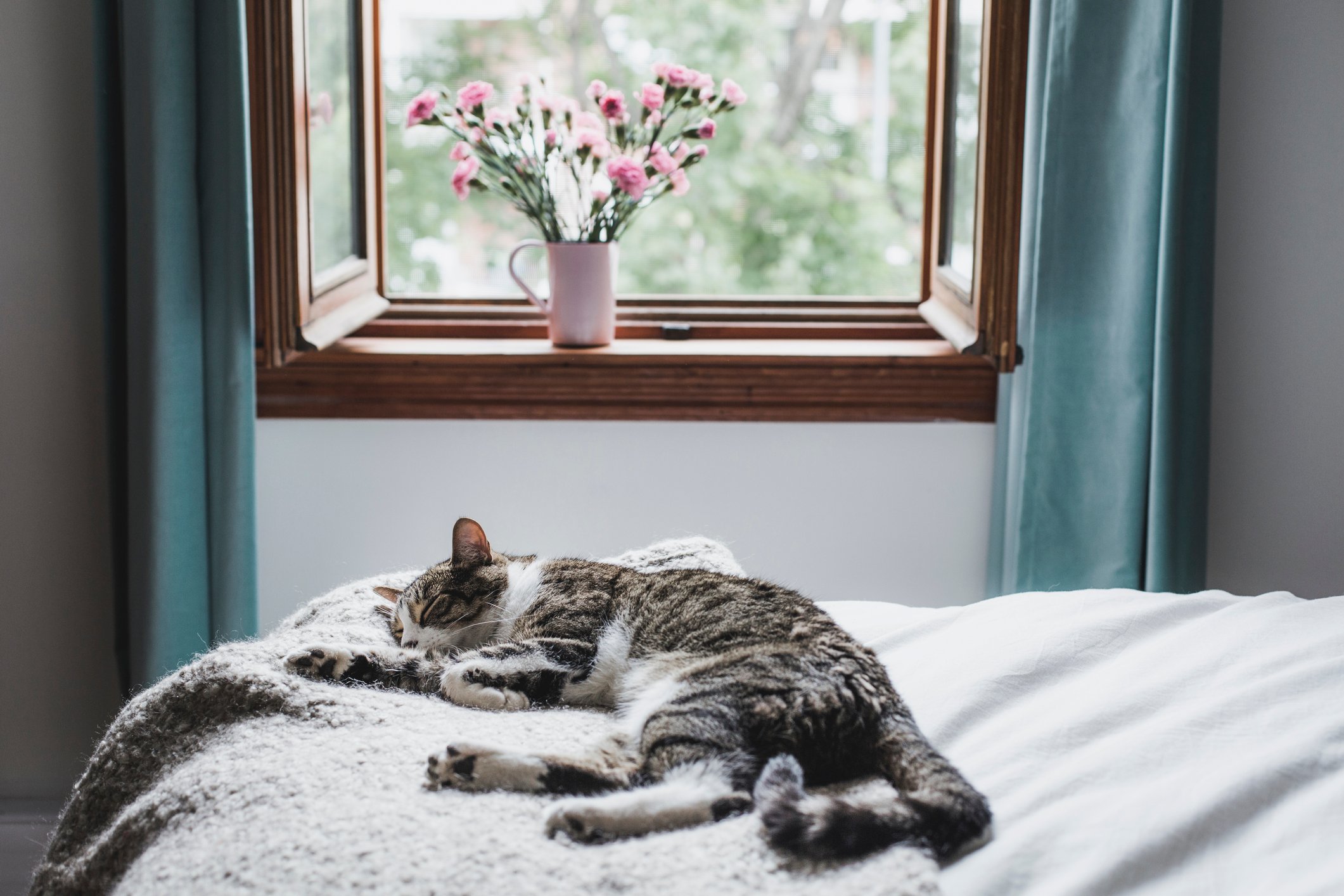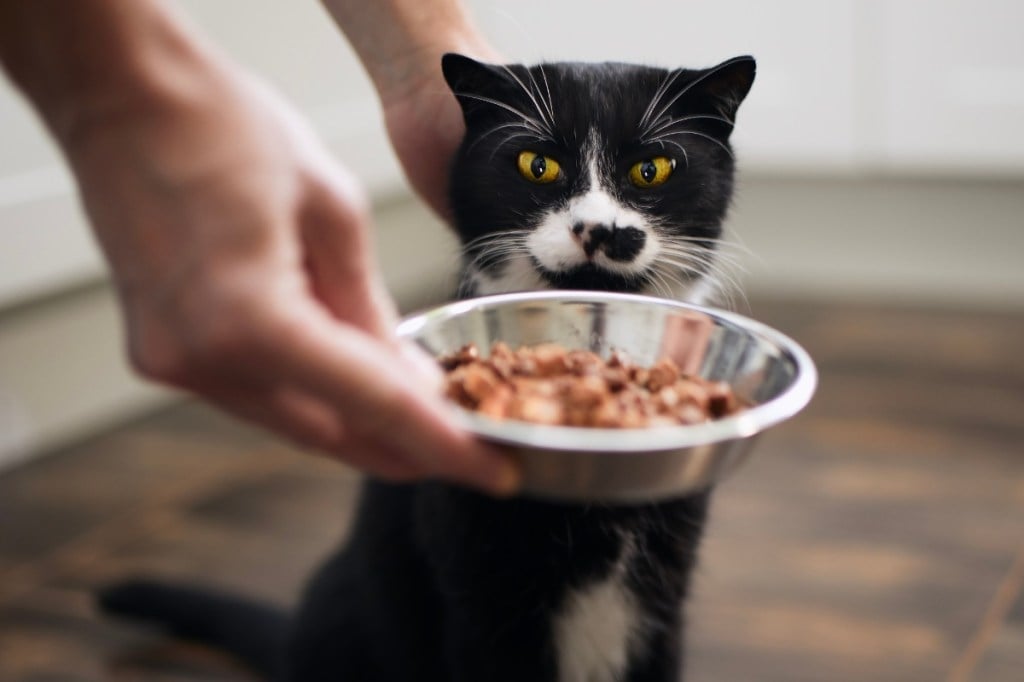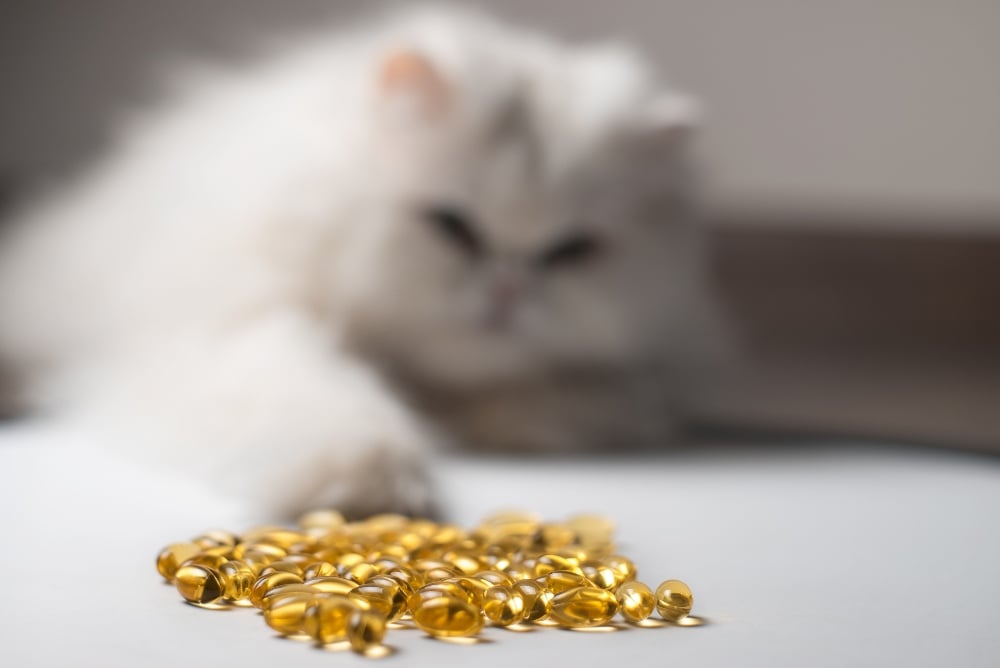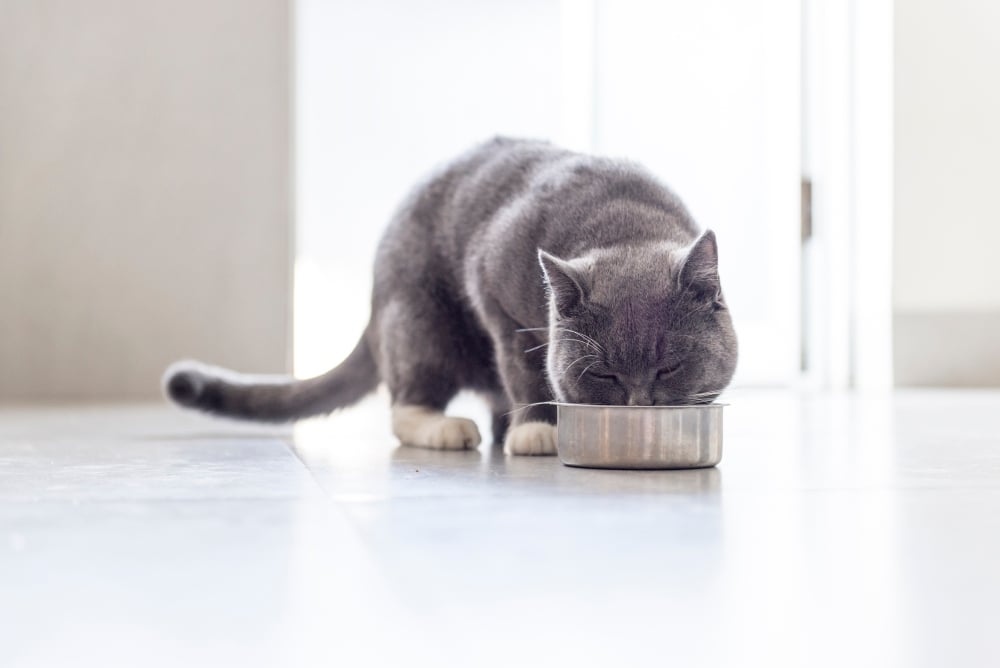Key Takeaways
- L-lysine is an amino acid used for feline herpesvirus, FHV-1.
- Chronic upper respiratory illnesses may be a sign of FHV-1 in cats.
- Recent research suggests that L-lysine may not actually prevent or treat FHV-1, nor alleviate its symptoms.
- Side effects of L-lysine are rare but may include nausea, vomiting, and diarrhea.
- L-lysine is available over the counter, but discuss using it with your vet before giving it to your cat.
Table of Contents
Sneezing and sniffling are sounds that every cat parent dreads. Respiratory infections are common illnesses that are difficult for cats to shake. Often, veterinarian appointments and prescribed medications are necessary to help cats recover. Along with conventional treatments, many veterinarians prescribe L-lysine supplements to cats suffering from respiratory conditions, such as the feline herpesvirus, to help reduce their symptoms and help them feel better.
What Is L-lysine?
L-lysine is an amino acid that is used as a supplement for humans and a variety of animals. It has long been administered by veterinarians for the prevention and treatment of feline herpesvirus, also known as FHV-1. Multiple cat foods and treats also include L-lysine as an additive.
Upper Respiratory Infections in Cats
Cats are highly susceptible to upper respiratory infections, which can manifest with the following clinical signs:
- Nasal congestion
- Sneezing
- Fever
- Discharge from eyes or nose
- Lack of appetite
- Lethargy
- Conjunctivitis
- Panting
Upper respiratory illnesses may be caused by either a bacterial or viral infection, and chronic occurrences of these colds may signal the existence of FHV-1. Cats with weaker immune systems, such as kittens or senior cats, are most prone to respiratory infections and FHV-1; however, even healthy cats in their prime can fall victim to these illnesses.
How Does L-lysine Work in Cats?
Veterinarians typically prescribe L-lysine supplements because of a long-held assumption that the amino acid eliminates the aforementioned symptoms of the infections and prevents future flare-ups. It is thought that L-lysine interferes with the replication of the FHV-1 virus by decreasing the amount of a second amino acid, arginine, within the body. (Note: Healthy Paws does not cover prescription diet and supplement costs.)
A Recent Study Sheds Light on L-lysine For Cats
Although L-lysine has long been prescribed for cats with respiratory infections, the veterinary community’s attitude toward this supplement began to change when a 2015 study published in the BMC Veterinary Research journal brought to light some concerning points. The researchers found that there was no proof that L-lysine supplementation suppressed FHV-1 in infected cats. They recommended that veterinarians stop prescribing L-lysine immediately due to the lack of evidence concerning its effectiveness. The study was summed up as follows:
- No evidence was found that L-lysine prevented or treated FHV-1 infection in cats.
- No proof exists that L-lysine can alleviate FHV-1 or any of its symptoms.
As mentioned, frequent use of L-lysine as a supplement lowers levels of arginine, an amino acid essential to cats. Lysine and arginine compete with each other for absorption within the body. Arginine is responsible for critical body functions, such as kidney filtration, immune system function, hormone regulation, and wound healing. Low arginine levels may also result in dangerously high ammonia levels, which can have serious health consequences in cats, including death.
Initially, researchers thought that lower arginine levels helped prevent FHV-1—hence the L-lysine recommendation—but the 2015 study has caused scientists, researchers, and veterinarians to adopt a more cautious attitude toward the use of this supplement.
Other Side Effects of L-lysine in Cats
Though this supplement is generally well-tolerated, L-lysine may cause the following side effects in some cats:
- Nausea
- Vomiting
- Diarrhea
L-lysine supplementation may interfere with other medications. Always talk to your veterinarian about other medications, supplements, or vitamins that your cat is taking before beginning L-lysine treatment.
Uncertainty of L-lysine Treatment
Due to the lack of scientific proof to support L-lysine’s effectiveness, some veterinarians are more reluctant to use it to treat respiratory infections in cats nowadays. Nevertheless, it is typically well-tolerated so many veterinarians still choose to supplement with L-lysine with the hope of any added benefit it may offer. Further research and clinical studies are needed to truly determine the benefits of this supplement. While L-lysine is available over the counter, always discuss whether it is right for your cat prior to beginning this therapy.
Healthy Paws does not cover prescription diets, however, other treatments to help chronic kidney disease and related symptoms are part of Healthy Paws plans. Find out more by getting a free quote.









